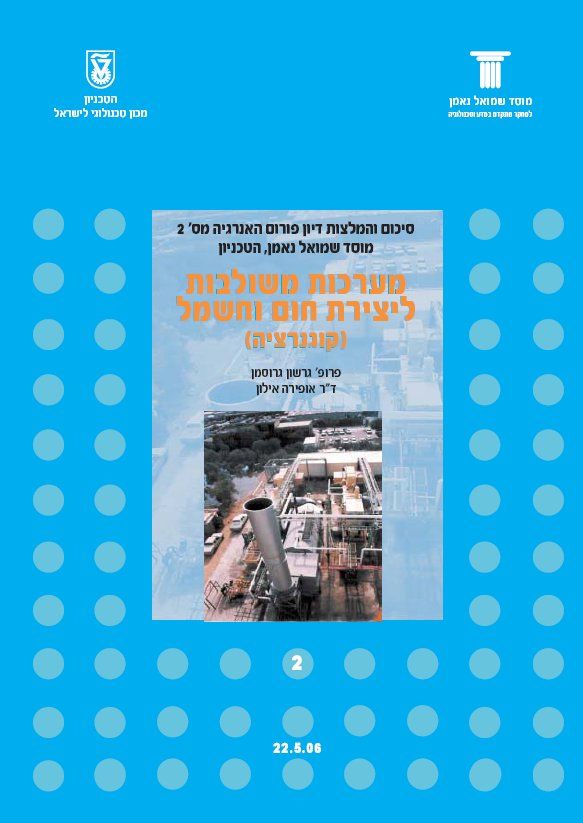Energy Forum 3: Waste to Energy (WTE)
The Samuel Neaman Institute for Advanced Research in Science and Technology, within the framework of its activity in the energy field, conducts meetings of the Energy Forum, devoted to discussions and debate over energy related issues of national importace. The Energy Forum holds focused discussions regarding specified themes, and teams of subject-matter experts are invited […]
Tertiary Education in Israel A New Paradigm for Policy Making
The study examines the various aspects of the existing policy on higher education and proposes a paradigm shift in order to promote academic research improve standards of instruction as well as accessibility to higher education, . The recommendations include fostering a policy of credit transfer between different types of post-secondary institutes and different programs while […]
Evaluation of engineering/scientific research and its impact on industry, economy and society: Literature review
The current literature review is part of a work which was carried out within the framework of the Neaman Institute and was ordered by the Technion management. The review goal was to examine the level of the engineering research at the Technion and at other Israeli universities in comparison to the world using objective tools. […]
The status of Israel and the Technion research in comparison to selected countries and institutes using bibliometrics indices
The current publication is part of a work which was carried out within the framework of the Neaman Institute and was ordered by the Technion. The review goal was to examine the level of the engineering research at the Technion and at other Israeli universities in comparison to the world using objective tools. In addition, […]
Innovation Policy for Development: an Overview STE-WP-34
This paper provides a framework for thinking about innovation policies for development. In such context innovation should be construed as a very broad notion that includes product and in process innovations of various sorts, generated by rank and file workers as much as by R&D labs. The economic rationale for government support of R&D needs […]
Energy Forum 2: Combined Heat and Power (Cogeneration) Systems

The Samuel Neaman Institute for Advanced Research in Science and Technology, within the framework of its activity in the energy field, conducts meetings of the Energy Forum, devoted to discussions and debate over energy related issues of national importace. The Energy Forum holds focused discussions regarding specified themes, and teams of subject-matter experts are invited […]
The Jewish People Today: Between Necessity and Freedom
This essay is dedicated to dealing with two basic questions: the first focuses on the swift changes that have occurred in our time in the status of the nation and its state – from one of necessity to one of liberty, from determinism to voluntarism, from enforced identity to chosen identity – and the expected ramifications upon […]
Comments on National Governance
This paper focuses on the various issues that interfere with the course of public life. The dispute over the future of the “territories” engulfs into it nearly all other issues relating to our public experience, including questions of religion and state, as well as our attitude towards the Arab minority. The IDF has been transformed, […]
The Necessity of Strategic Thinking: A Constitutive Vision for Israel and its Implications
This paper positions long-term aims for the State, which will facilitate a fitting balance between social cohesion and involvement in the national endeavor, on one hand, and dissension and multiplicity of opinions, on the other. Gavizon therefore deviates from the more widespread efforts to blur basic goals in order to attain accord regarding short-term policies. […]
Modern Jewish Identities and the State of Israel
Is it possible to produce a significant attitude, in which the multiplicity of identities in the State of Israel will be productive and fertile, rather than one that necessarily fosters tension and destructive inner conflict within the state? This question stands at the heart of this article, which argues that the State of Israel is […]
